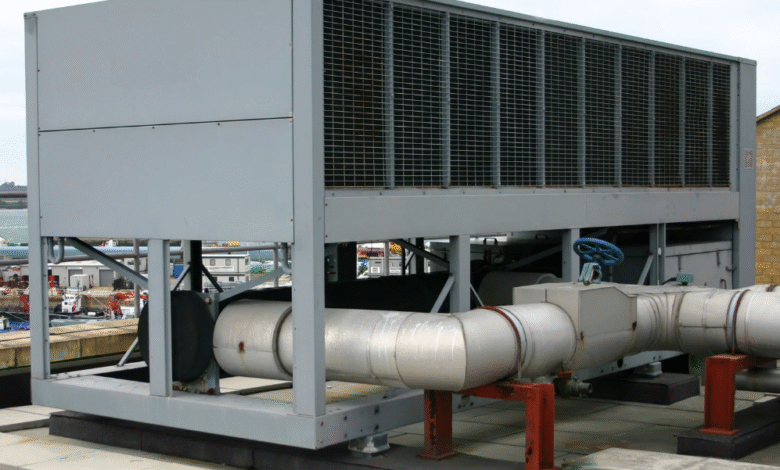Key Factors to Consider When Choosing Industrial Chiller Rentals

When your operations rely on climate control for product quality, equipment stability, or workspace safety, temporary cooling solutions become essential. Choosing the right industrial chiller rental ensures efficiency, reliability, and compliance with your project’s demands. For businesses requiring scalable cooling in extreme weather conditions or during planned maintenance, industrial chiller rentals in Oklahoma provide access to high-capacity systems without the need for long-term capital investment. Understanding which features matter most can save both time and money, especially when production uptime is at stake.
Equipment Capacity and Load Demands
Before securing a rental, it is essential to assess your facility’s cooling load accurately. Overestimating can inflate costs, while underestimating may result in system strain or failure. The chiller must match your industrial application, whether for data centers, process cooling, or large-scale HVAC supplementation. Factors like ambient temperature, square footage, and heat-generating equipment should be calculated as part of a site-specific load analysis. Portable chillers are available in air-cooled or water-cooled options, each with distinct installation requirements. Engaging a provider that evaluates your operational conditions helps ensure optimal performance and energy use.
See also: Exploring Tech Innovations in the Automotive Industry
Energy Efficiency and Controls
Advanced rental chillers are now equipped with digital monitoring tools that provide real-time diagnostics, energy tracking, and performance feedback. Look for models that comply with current energy standards and include variable speed compressors or adaptive control systems. These features help reduce consumption during low-load periods and can significantly cut operational costs across multi-day or seasonal rentals.
Thermal efficiency plays a direct role in system lifecycle, maintenance schedules, and total cost of ownership. Choosing units designed for efficient heat transfer reduces the load on support systems, such as air handlers and pumps.
Installation Flexibility and Support Services
Not all facilities can easily accommodate large equipment installations. Assess the site’s structural limitations, including power availability, spacing, water source proximity, and ventilation needs. Modular systems or skid-mounted designs enable easier transport and installation, minimizing delays during emergencies or high-demand events. Support services also matter. Providers offering turnkey solutions, including delivery, installation, and on-site technicians, help mitigate downtime. Preventive maintenance, remote monitoring, and emergency repairs should be part of the service package to ensure continuous performance throughout the rental period.
In addition to ease of deployment, one of the top benefits of industrial chiller rental is the ability to scale cooling capacity as needed without long-term financial commitment. Temporary systems reduce capital expenditure, eliminate storage concerns, and provide businesses with flexibility during seasonal fluctuations, system upgrades, or emergency failures. This adaptability supports cost control while ensuring equipment redundancy when reliability is mission-critical.
Compliance, Reliability, and Cost Considerations
Rented chillers must meet safety and emissions standards relevant to your industry. Regulatory compliance for refrigerants, electrical systems, and noise levels protects your business from fines or interruptions. Working with professionals familiar with these protocols ensures safe integration with your existing infrastructure.
Operational history, equipment age, and manufacturer standards also impact system reliability. Always request maintenance records and certifications. Avoid renting outdated or poorly maintained equipment that can jeopardize production timelines. In broader terms, businesses are also recognizing the importance of industrial chiller rentals in supporting business continuity during critical operations. These temporary systems play a crucial role in maintaining smooth operations, particularly in data-sensitive, food-processing, or pharmaceutical environments.
Conclusion
Industrial chiller rentals offer more than just temperature control; they provide flexibility, risk mitigation, and budget efficiency when chosen strategically. Businesses that plan for compatibility, efficiency, and service support gain the most from temporary cooling systems. Whether for planned upgrades or unexpected outages, partnering with a professional provider for industrial chiller rentalsensures your equipment will meet the demands of your environment. Selecting the right system from the start secures operational stability and maximizes your return on rental investment.





